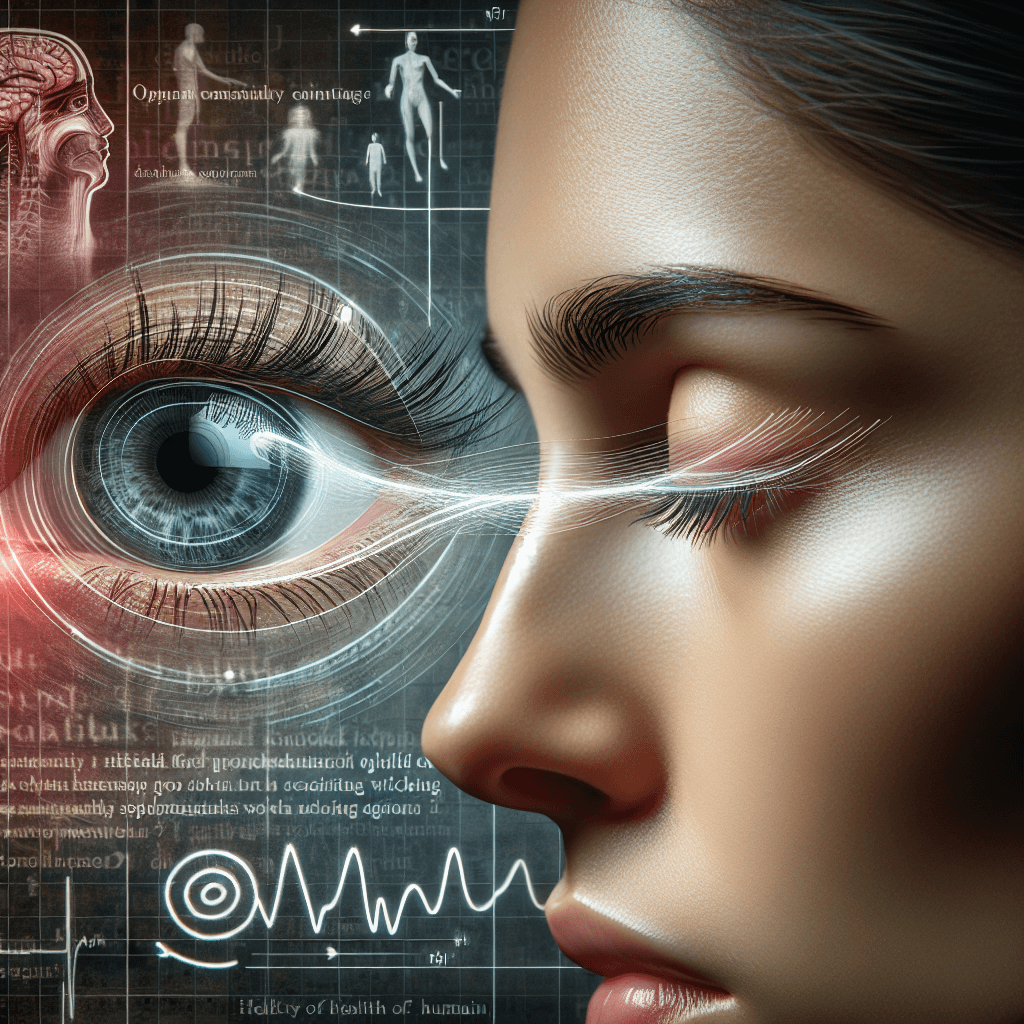Why does your eyelid sometimes start twitching uncontrollably for no apparent reason
That tiny, maddening flutter in your eyelid isn't just a random glitch; it’s your body sending a surprisingly simple signal you won't want to ignore.


Too Long; Didn't Read
TLDR: Your eyelid twitches from stress, fatigue, eye strain, or too much caffeine. It is almost always harmless and will stop if you get more rest and cut back on stimulants.
Decoding the Flutter: Why Does Your Eyelid Sometimes Start Twitching Uncontrollably for No Apparent Reason?
It’s a sensation nearly everyone has experienced. You’re in a meeting, reading a book, or just relaxing, and suddenly it starts: a tiny, persistent, and utterly distracting flutter in your eyelid. It feels like everyone must be able to see it, even though it's almost invisible to the outside observer. This involuntary spasm, seemingly coming from nowhere, can last for minutes, hours, or even days. While it’s rarely a cause for alarm, it’s one of the body’s most common and curious little signals. This post will delve into the medical reasons behind that annoying flutter, explore the most common triggers, and clarify when it might be time to consult a doctor.
Unpacking the Twitch: What is Eyelid Myokymia?
That uncontrollable eyelid twitch has a medical name: eyelid myokymia. It refers to an involuntary, fine, and continuous contraction of the orbicularis oculi muscle, the circular muscle responsible for closing your eyelids. Essentially, it's a minor muscle spasm.
In the vast majority of cases, eyelid myokymia is benign, meaning it's harmless and not a sign of a serious medical condition. It typically affects only one eye at a time (usually the lower lid, but the upper lid can be involved too) and resolves on its own without any medical intervention. Think of it less as a symptom of disease and more as a "check engine" light from your body, often indicating that you might be overdoing it in one or more areas of your life.
The Usual Suspects: 7 Common Triggers for Eyelid Twitching
While the exact physiological mechanism isn't perfectly understood, ophthalmologists and researchers have identified several common lifestyle factors that are strongly linked to episodes of eyelid myokymia. If your eyelid is twitching, it’s likely due to one or more of the following culprits:
- Stress: When you're under pressure, your body releases stress hormones like cortisol and adrenaline, which prime your muscles for a "fight or flight" response. This heightened state of arousal can cause nerves to fire erratically, leading to muscle twitches anywhere in the body, including the delicate muscles of the eyelid.
- Fatigue: A lack of sleep is one of the most frequent causes. Sleep deprivation can disrupt neurotransmitter function in the brain, leading to misfiring signals that cause involuntary muscle contractions.
- Eye Strain: In our digital age, this is a huge factor. Prolonged focus on computer screens, smartphones, or tablets without breaks can overwork your eye muscles. Uncorrected vision problems, like needing a new glasses prescription, can also lead to significant strain and subsequent twitching.
- Caffeine and Alcohol: Both substances are stimulants that can affect the central nervous system. Excessive intake of coffee, tea, energy drinks, or alcohol can make your muscles, including those in your eyelids, more prone to spasms.
- Dry Eyes: Many factors can cause dry eyes, including aging, wearing contact lenses, computer use, and taking certain medications like antihistamines. The irritation and discomfort from dryness can trigger a reflexive twitch.
- Nutritional Imbalances: While less common, some experts suggest that a deficiency in certain micronutrients, particularly magnesium, could play a role. Magnesium is crucial for proper nerve and muscle function, and a lack of it can contribute to spasms.
- Allergies: Eye allergies can cause itching, swelling, and watery eyes. When you rub your eyes, you release histamine into the lid tissues and tear film, which can irritate the muscle fibers and cause them to twitch.
Is It Just a Twitch? When to See a Doctor
For the vast majority of people, an eyelid twitch is a temporary annoyance that will fade as you address the underlying triggers—by getting more sleep, cutting back on coffee, or taking screen breaks. However, in very rare instances, a persistent twitch can be a sign of a more serious neurological condition.
You should consider scheduling an appointment with an eye doctor or your primary care physician if you experience any of the following:
- The twitching persists for more than a few weeks.
- The spasm is so strong that it causes your eyelid to close completely.
- The twitching spreads to other parts of your face or body.
- Your eye is red, swollen, or has an unusual discharge.
- You notice any changes in your vision, such as blurriness or light sensitivity.
These symptoms could indicate a condition like benign essential blepharospasm (which involves forceful closure of both eyes) or hemifacial spasm (which affects one entire side of the face). These conditions are rare but treatable.
Conclusion
The next time your eyelid starts its frantic little dance, don't panic. In all likelihood, it's simply your body’s way of sending you a message. It might be asking for more rest, less stress, a break from your screen, or a little less caffeine in your day. By listening to these subtle signals, you can often resolve the twitch quickly and get back to your day without the distraction. Understanding the common causes demystifies this peculiar phenomenon, transforming it from a source of worry into a helpful reminder to prioritize your well-being.


